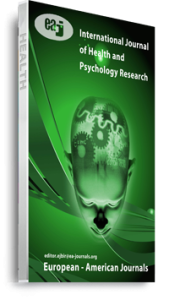Restrictions on movement and basic human rights inevitably causes a negative impact on the mental health of individuals worldwide. This could become particularly apparent in the UK where the government placed firm restrictions on the movement and freedom of the public in response to COVID-19. This study aimed to determine associations between mental health and strategies adopted by residents to cope with lockdowns during the COVID-19 pandemic. Self-reported data were collected from 647 adults through an online survey. Results revealed that over 20% of participants reported symptoms of Post-Traumatic Stress Disorder. Multivariable logistic regression analysis confirmed that participants reporting use of positive coping strategies (spending time meditating and with pet companions) had significantly lower odds of experiencing symptoms of PTSD; whereas those who spent time social distancing by communicating with others online and exercising at home showed increased odds of experiencing PTSD symptoms. This study signifies COVID-19 as a major source of mental distress for adults residing in the UK and advocates various methods of coping during such stress-inducing times.
Citation: Joanne Lusher, Morenike Oluwatoyin Folayan, Maher Rashwan Attaallah Mohamed, Roberta Ariel Abeldaro Zuñiga, Maha El Tantawi, Ntombifuthi P Nzimande, Passent Ellakany, Anthonia Omotola Ishabiyi, Giuliana Florenica Abeldaño, Ala’a B Al-Tammemi, Olubukola Popoola, Muhammad Abrar Yousaf (2021) Mental Health and Coping Contingencies among Adults Residing In the United Kingdom during the Covid-19 Lockdowns, International Journal of Health and Psychology Research, Vol.9, No.3, pp.16-26
Keywords: Adults, COVID-19, Coping, Mental Health, UK, lockdowns

